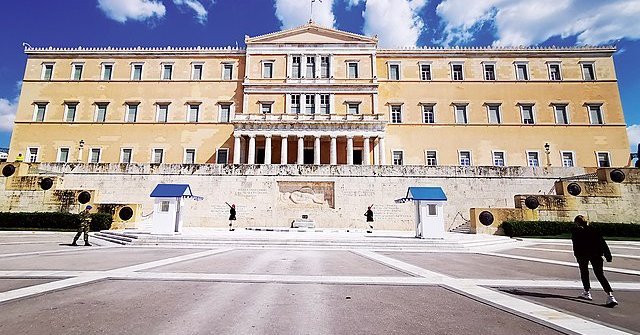On March 8th, 2024, the Greek Parliament voted on a law on private Higher Education Institutions (HEIs). Prime Minister Kyriakos Mitsotakis (EPP) praised this legislative development as a milestone, stating, “On the 50th anniversary of the restoration of the Republic, this breakthrough turns into an opportunity, a chronic deficiency of Metapolitefsi, bringing Greek reality closer to the European.”. ’Metapolitefsi’ refers to the regime change from the military junta of 1967-1974 to the establishment of the Third Greek Republic.
The novelty of the law is the regulation of licensing the establishment and operation in Greece of branches of higher education institutions, which are based and recognised in other member-states of the EU or third countries under the GATS, WTO’s treaty. However, Article 16 of the Greek Constitution states that i. “Higher education is provided exclusively by institutions that are legal entities under [national] public law with full self-governance” (par 5, sub a), ii. “Professors of higher education institutions are public officials” (par 6, sub a), iii. “The establishment of higher education institutions by private entities is prohibited.” (par 8, sub b). Additionally, in three previous constitutional revisions (2001, 2008, 2019) the proposal to remove Article 16 from the Constitution was rejected. A Latin maxim says “in claris non fit interpretatio”, when the meaning is clear no interpretation is needed. Unfortunately, certain actors in the Greek public sphere -the Government included- do not share this doctrine.
According to E. Venizelos, former Deputy Prime Minister and constitutional law professor, and V. Skouris, former President of the European Court of Justice (ECJ), the interpretation of Article 16 (5,8) can not be grammatical or historical as the Constitution is not a static text. A modern interpretation, they argue, of Article 16 in conformity with EU law requires the establishment and operation of HEIs in Greece from EU member-states, as it consists of a limitation to the freedom of establishment and services provision (Article 49, TFEU). As the well-informed readers of TNF know, EU law has primacy where member-states transfer sovereignty. Education doesn’t belong to this category (Art 6, TFEU). A major sophistry takes place here. E. Venizelos, V. Skouris and I. Sarmas -former President of the Greek Court of Auditors- claim that since the ECJ gave full legal binding force to Article 14 (3) of the Charter of Fundamental Rights (case C-66/18 Commission v Hungary) the freedom of establishing private HEIs should be applied. Additionally, in contrast with Greece, Hungary does not have any constitutional limitation on establishing private HEIs. Moreover, the European Commission never referred Greece to the ECJ -on this issue at least- and the ECJ never issued a ruling against Greece in such a delicate matter.
The Greek Government simply deactivated Article 16 of the Constitution. In violation of the constitutional revision procedure, which requires -among other things- a qualified majority to guarantee political and social consensus. It uses its power position against a fragmented and weak opposition. In parallel, it creates a dangerous precedent for parliamentary democracy. A Constitution should not be partly deactivated based on experts’ interpretations, which legitimize executive actions. This affects the normative power of the constitution. It damages citizens’ trust towards the constitutional text and democracy itself. It appears that certain elites with vague and not easily comprehensible words change the rules of the democratic game without following the designated procedural path. Last but not least, when a national government instrumentalizes pro-European discourse against constitutional rules, it damages the image of the EU.

Follow the comments: |
|
